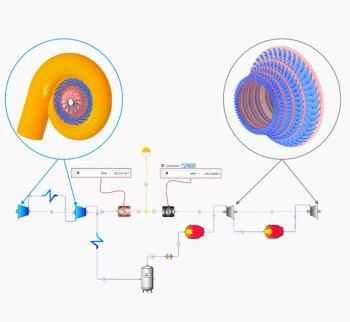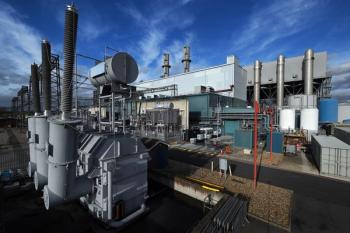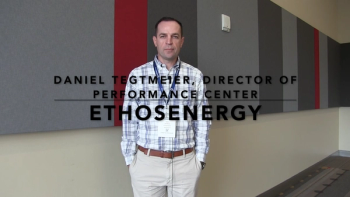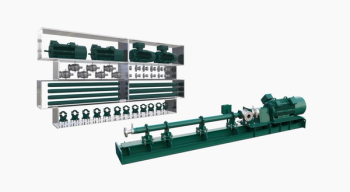
OEMs to help develop Thermal History Coating technology
Sensor Coating Systems (SCS) recently announced the launch of a ‘User Club’ for the development of its core sensing technology, a Thermal History Coating (THC). The club launches with five members, including Alstom (Switzerland) Ltd., MAN Diesel & Turbo (Germany), SNECMA (France) and SCS. With representatives from the US and Europe, and both the aero engine and industrial gas turbine sectors, the User Club’s objective is to generically develop the technology in a way that it can be applied in modern engine development programs to significantly lower development costs and accelerate the introduction of new low-emission engines.
The user group will obtain a new generation temperature profiling method and apply this throughout their engine and machinery development and monitoring programs with all the associated cost benefits and first mover advantages. The project is supported by both UK and US governmental funding bodies.
The program is divided into six technical work packages and one management work package. Milestones are introduced after 12 months and after 30 months. This will assist in ‘derisking’ the project. WP1 and WP2 will run in parallel to enable the simultaneous development of the instrumentation and coating application.
Advantages of the THC
The THC will replace current industry standard thermal paints. It offers significant advantages to companies engaged in the development of aero engines and industrial gas turbines. The technology is robust and non-destructive thereby enabling multiple tests of components used in the development process without the time and cost penalties of repeatedly dismantling the engine for analysis.
A hand-held reader is also being developed as part of the system and the assessment of test results will no longer rely on subjective judgment by development engineers. With greater accuracy in the judgment of test results added to significant savings in costs and development timescales SCS is confident that its new technology will bring great benefits to its users.
THC, originally developed by a team at Imperial College, London, is based on the light emitting properties of a class of ceramic materials, which, when exposed to particular levels of temperature, undergo irreversible changes in the material structure or chemistry. When excited with a probing light the material starts to phosphoresce and this can be observed with specialized optical components to establish a correlation between the observed light and the past temperature.
The ceramic material can be applied as a robust coating onto a component, using standard manufacturing techniques such as atmospheric air plasma spraying (APS), or, for low temperature regimes as a paint, giving the end-user great flexibility over the coating application. The readout device can be bench based or hand held, the latter enabling in-situ temperature profiling on a component. Unlike existing solutions in the market, the reading of temperature does not require human subjectivity.
This exclusive User Club arrangement gives its members particular rights to future use of the technology and also secures a first mover advantage over non-members. Additionally, the club’s development roadmap is aligned with two existing programs financed by both UK and US governmental agencies, giving the club an advantageous starting position. The program will run for 30 months and will be open to new members during its first year of operation.
Dr Jörg Feist, managing director, said: ‘Under this club arrangement the members will develop confidence in the technology and will assist SCS in defining a new industrial standard for temperature profiling and temperature indicating sensors.’
Newsletter
Power your knowledge with the latest in turbine technology, engineering advances, and energy solutions—subscribe to Turbomachinery International today.




